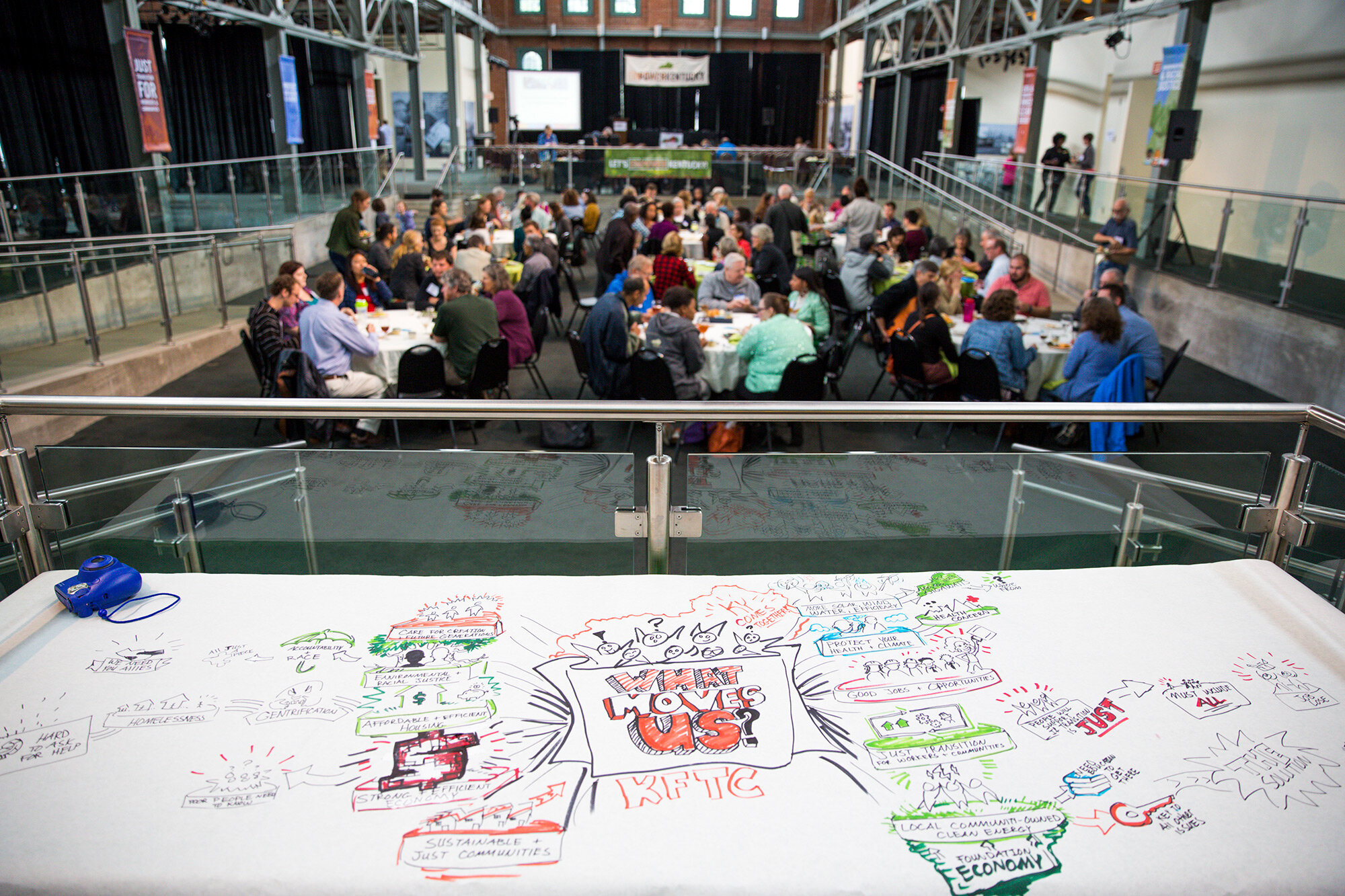StoryAppalachia’s Bright Future
In the first decade of the 21st century, the War on Coal narrative dominated political discourse in Appalachia and made it nearly impossible to imagine a future beyond the coal economy. Kentuckians for the Commonwealth (KFTC) had worked for years with grassroots leaders in Eastern Kentucky whose communities were devastated by mountaintop removal coal mining and who sought solutions for a just transition for workers and communities. In 2011, as part of the Appalachian Transition Initiative, KFTC called on then-Governor Steve Beshear to engage in a public conversation about the state of the coal industry and what was needed to ensure a just transition. After 14 KFTC members occupied his office for three days, the Governor agreed to tour two Eastern Kentucky counties and listen to community leaders. Organizing by grassroots leaders over the next two years culminated in Appalachia’s Bright Future, a conference in Harlan County, Kentucky, in 2013 that became a watershed moment for the regional Appalachian Transition movement. The invitation to collectively rewrite the narrative for Central Appalachia caught on quickly and went on to influence mainstream economic development partners, including state and federal officials. When Governor Beshear and Congressman Hal Rogers convened Save Our Appalachian Region (SOAR) six months later, grassroots leaders turned out to advocate for a just transition. These early principles of a just, equitable, and sustainable transition remain central to the community investment ecosystem a decade later, reflecting the region’s strong sense of self-determination and providing a reliable counterweight to inconsistent public sector leadership and policy.
THEMES
SELF-DETERMINATION
EQUITY IN THE CENTER
COMMUNITY CAPACITY

Appalachia's Bright Future Conference | Courtesy of Kentuckians for the Commonwealth

I Love Mountains Day | Courtesy of Kentuckians for the Commonwealth

I Love Mountains Day | Courtesy of Kentuckians for the Commonwealth

Empower Kentucky Summit | Courtesy of Kentuckians for the Commonwealth






